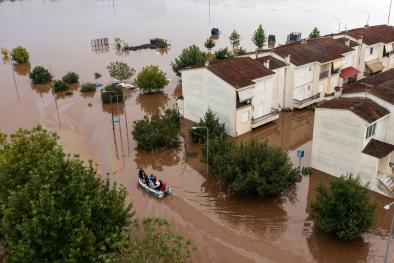Science Source
On the causes of declining Colorado River streamflows
- States that over the period 1916-2014, the Upper Colorado River Basin (UCRB) naturalized streamflow declined by 16.5%, despite the fact that annual precipitation in the UCRB over that period increased slightly
- Performs a set of experiments with the Variable Infiltration Capacity (VIC) hydrology model to examine the causes of the runoff declines
- Results show that:
- The pervasive warming has reduced snowpacks and enhanced evapotranspiration (ET) over the last 100 years
- Over half of the long‐term decreasing runoff trend is associated with the general warming
- Finds that:
- Whereas a mid-century drought was caused primarily by pervasive low precipitation anomalies across UCRB, higher temperatures have played a large role in the ongoing post‐Millennium Drought
- The post‐Millennium Drought has also been exacerbated by negative precipitation anomalies in several of the most productive headwater basins
Related Content
Science Source
| American Meteorological Society
Getting ahead of Flash Drought: From Early Warning to Early Action
Jason A. Otkin, Molly Woloszyn, Hailan Wang et al
Science Source
| American Meteorological Society
Flash Droughts: A Review and Assessment of the Challenges Imposed by Rapid-Onset Droughts in the United States
Jason A. Otkin, Mark Svoboda, Eric D. Hunt et al
Science Source
| Nature Climate Change
Rapid intensification of the emerging southwestern North American megadrought in 2020–2021
A. Park Williams, Benjamin I. Cook & Jason E. Smerdon
Headline

Oct 26, 2023 | Climate Nexus Hot News
The Planet is ‘Under Siege,’ Scientists Say


